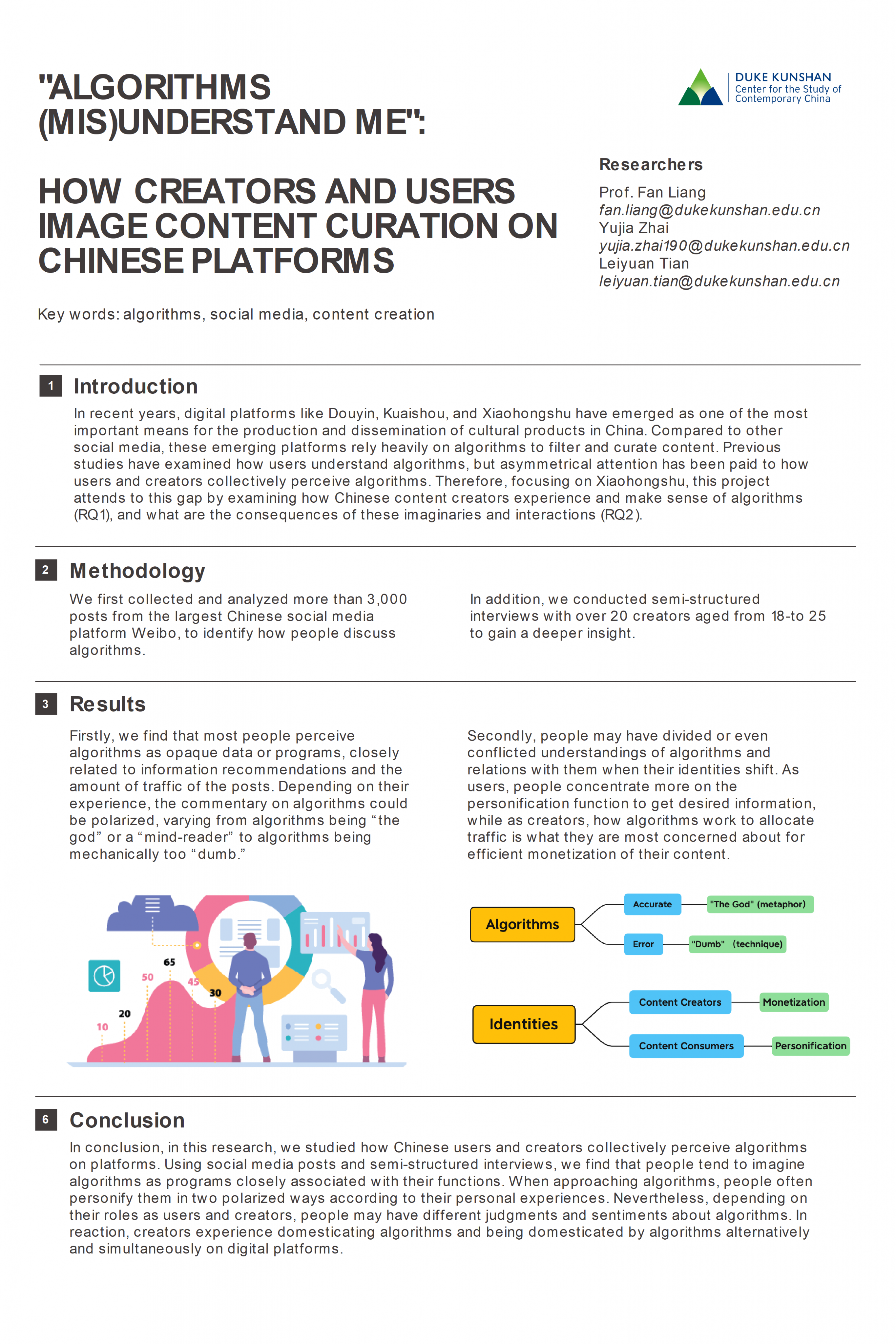
Supervisor: Liang Fan, Assistant Professor of Media
Student Researcher
Yujia Zhai is a senior student from Duke Kunshan University, majoring in Art History, Media and Arts. Her research interests lie in the intersection of art, commerce, media, and technologies.
About the Project
In recent years, digital platforms like Douyin, Kuaishou, and Xiaohongshu have emerged as one of the most important means for the production and dissemination of cultural products in China. Compared to other social media, these emerging platforms rely heavily on algorithms to filter and curate content. Previous studies have examined how users understand algorithms, but asymmetrical attention has been paid to how users and creators collectively perceive algorithms. Therefore, focusing on Xiaohongshu, this project attends to this gap by examining how Chinese content creators experience and make sense of algorithms, and the consequences of these imaginaries and interactions.
For the research methods, we collected and analyzed more than 3000 posts from Weibo to identify how people discuss algorithms. In addition, we conducted semi-structured interviews with over 20 creators aged from 18-to 25 to gain a deeper insight. Drawing on algorithmic imaginary literature and reactivity theory, we find that most people perceive algorithms as opaque data or programs, closely related to information recommendations and the amount of traffic of the posts. Depending on their experience, the commentary on algorithms could be polarized, varying from algorithms being “the god” or a “mind-reader” to algorithms being mechanically too “dumb”. Both as creators and users, people tend to personify algorithms, but they may have divided or even conflicted understandings of algorithms and relations with them when their identities shift. As users, people concentrate more on the personalization function to get desired information, while as creators, how algorithms work to allocate traffic is what they are most concerned about for efficient monetization. During this process, two types of domestications occur. One is when people try to domesticate algorithms by training and cheating algorithms, and the other is when they are being domesticated by algorithms when feeling manipulated or compelled to cater to them.
Poster Presentation



